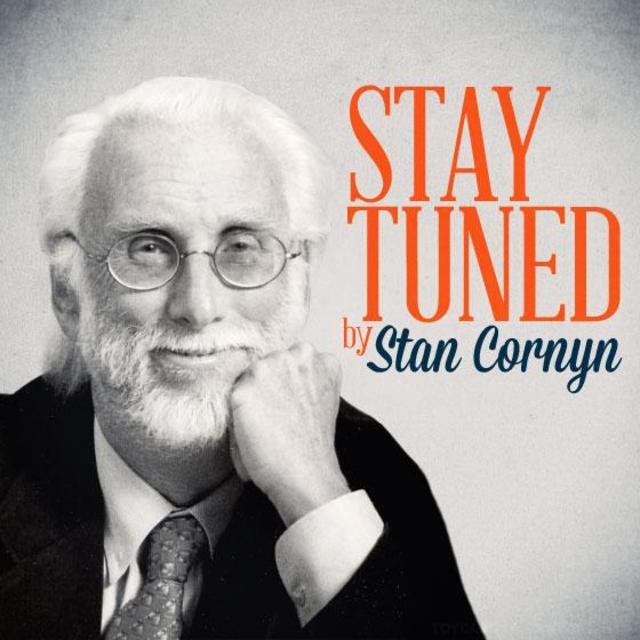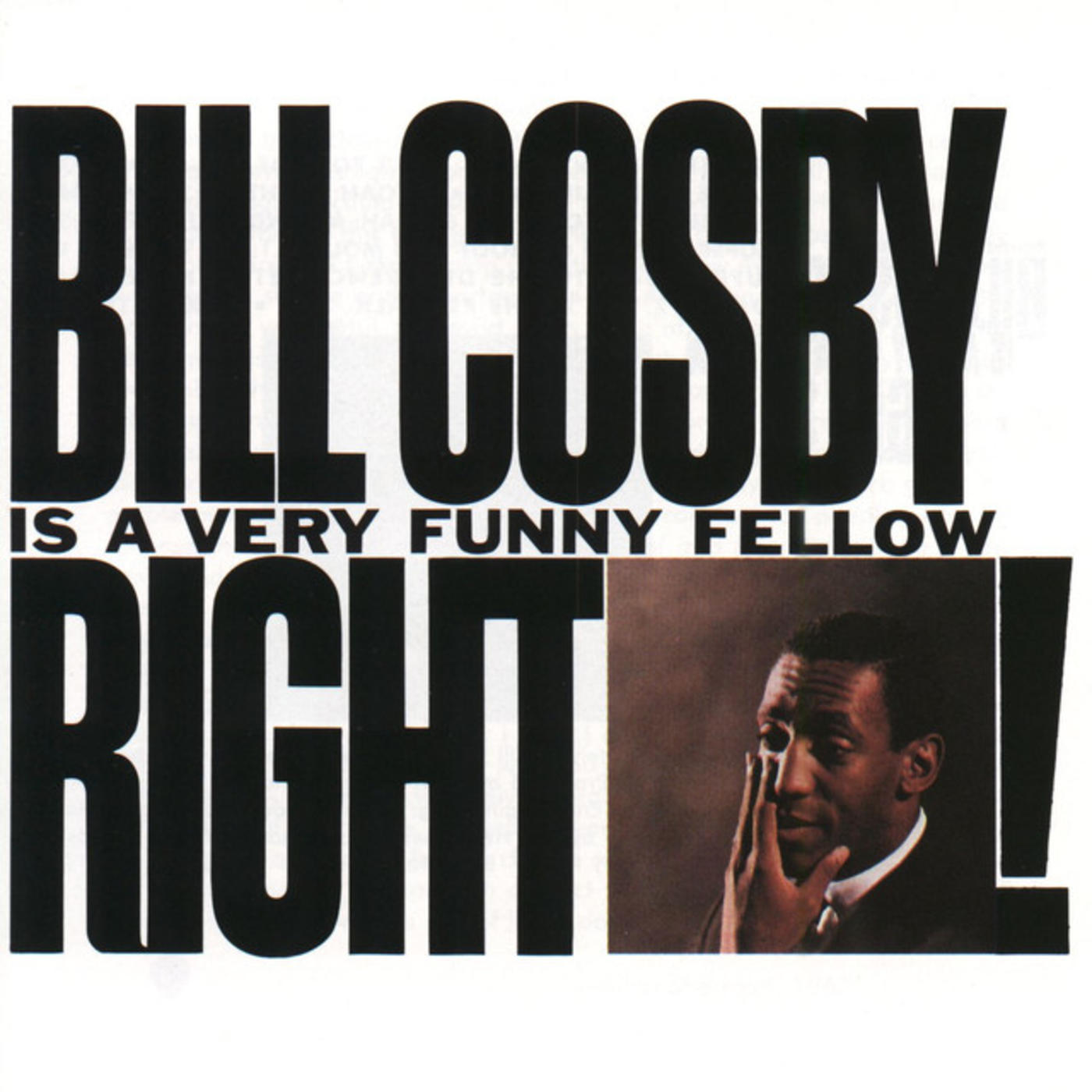Stay Tuned By Stan Cornyn: Cosby, Bill

Every Tuesday and Thursday, former Warner Bros. Records executive and industry insider Stan Cornyn ruminates on the past, present, and future of the music business.
Just up a street or two from Warner Bros. Records office was, in 1963, NBC Studios, which each weeknight brought new talent to TV audiences its Tonight Show. Usually, each night featured a guest comedian. So over time, there’d be, like, a few hundred comedians who’d guested on a Tonight, then drifted back to clubs. Most of them would love to sign a record contract.
In 1963, Allan Sherman was guest-hosting for Jack Parr, Tonight’s regular host. Sherman asked Bill Cosby to come on as one night’s comic. Cosby was an appealing young fellow, recently turned professional (he’d been an athlete and bartender earlier in his college life).
An enthusiastic (hustling) talent manager, Rob Silver, quickly connected Cosby to Warner’s record men, and, based on the fresh shows Cosby had pulled off on “Tonight,” and a record deal was easily cut.
To be fair, Warner Bros. Records had emerged as the right label for comedy. Already, in its brief history, it had introduced best-sellers by Allan Sherman and Bob Newhart. Both smart and witty comedians.
So, said Warner, let’s take a shot. Allan Sherman pushed for a “yes,” too. And... no orchestra costs, either; cheap to record. Regular deal, with seven years of albums to come out, those at Warner’s option.
Cosby Is Different
Bill Cosby had talked funny for years, ever since his wobbly college days when he shook ice part-time behind bars. Jokes coming from behind the bar to customer/drinkers were his forte.
Unlike most joker-pourers, Cosby did not talk dirty. He’d schooled himself watching friendly TV comedians, from Jerry Lewis to Sid Caesar.
Now here he was, age 27, recording his first album, Bill Cosby Is a Very Funny Fellow, Right? In Greenwich Village’s The Bitter End club. Key to the recorded show was Cosby’s routines about life’s oddities.
Being a little too market-focused about this new comedy album, Warners added the words “Produced by Allan Sherman” on the first runs of the album.
Out it came:
Twelve funny memory tales filled two sides of the LP. But it was Cosby’s wry stories about Noah that got to most people. Noah got three cuts at the end of Side One. Like … Noah gets this phone call:
Who is that?
It's the Lord, Noah.
Right! Where are you? Whacha want? I've been good.
I want you to build an Ark.
Right! What’s an Ark?.
Get some wood. Build it 300 cubits by 80 cubits by 40 cubits.
Right! What’s a cubit? Let’s see a cubit...I used to know what a cubit was…
Well don't worry about that, Noah. When you get that done go out into the world and collect all of the animals in the world by twos, Male and female, and put them into the ark.
Right! Who is this really? …Am I on Candid Camera?
'Course Noah had a heck of a job really.
He had to go out and collect all the animals in the world, by two's.
Two mosquitoes, male or female.
And, uh, he had to keep telling the rabbits “only two, only two, only two.”
So we find Noah pulling up the last two animals -- two hippos –
and he's really in a hurry to get ‘em up because he’s afraid that the Lord’s gonna call him and ask him to do something else and his nerves are shot.
This is one heck of a job for a man 600 years old!
For Warner Bros. Records, Right! proved a cinch. Radio loved it, but it got no Grammy (1964’s comedy Grammy went instead to Allan Sherman for Hello Muddah, Hello Fadduh). Warner showed no bias, just so it won.
Manager Roy Silver hung in Warner’s halls, but didn’t need to push the staff. Silver just walked in with showbiz gossip, got laughs, felt welcome.
Album Two, and TV Too
1964 began with Cosby’s second album of childhood memories, I Started Out as a Child. Recorded at Chicago’s Mr. Kelly’s, it was filled with Cosby’s childhood recollections. Childhood outsold album one.
Fifteen short tales from “Sneakers” to “The Water Bottle” to “My Pet Rhinoceros” to “The Lone Ranger.” An album of mass appeal, so mass that it started Cosby’s Grammy run for Best Comedy Album for every year for six years In a row:
So here they come: 1965: Why Is There Air? – recorded up in Vegas at the Flamingo – where Cosby shares more family memories like “Kindergarten Snacks”: “old, dried-up, brown, nasty-tastin', gag-ya, stick-in-the-throat graham cracker with milk that’s been sitting on the radiator for about 80 years."
Cosby was reaching higher and better. In this year he was cast as co-star in the TV series “I Spy” (with Robert Culp). It ran for 82 episodes, and Cosby felt like he belonged in every home.
And this year, besides his Grammy, he got an Emmy, too.
Next: 1967: Wonderfulness, and Grammy Three
1968: Revenge, and Grammy Four
1969: To Russell, My Brother Whom I Slept With, and Grammy Five
Why Cosby Left Home
By now, the time had come to extend of Bill Cosby’s contract with Warner Bros. Records. He was clearly worth a better deal. Should have been easy, except WBR was owned by a different corporation now. Jack Warner had sold his studio and all that went with it to a company called 7 Arts, and that company was frugal in a way not felt in Burbank since WBR’s year one. The fact that Bill Cosby was a giant seller for WBR, Grammys in a row, none of that affected 7 Arts’ stingy attitude. 7 Arts was 100% about profits.
When the new deal for Cosby was put on the 7 Arts table, the New York management told WBR, flat out, “Let ‘im go.” New York hated the deal. A press release was allowed out, describing how 7 Arts management had refused to meet “excessive demands for a renewal advance.”
Cosby and his manager, Roy Silver, froze in rage. This was nuts. WBR Chairman Maitland felt helpless.
Roy Silver never felt helpless for more than one minute. He quickly proposed, and Cosby agreed, that they start their own label. One that they’d own themselves. They’d put together a corporation to finance this….
Agreed, and here we go.
What’ll we name it?
They picked a less than obvious name: Tetragrammaton Records. Based on a barely speakable Hebrew term for “Jehovah.” (Murray Roman, a label comic for this new label -- his two albums didn’t sell -- suggested the name. Don’t ask.)
So Bill Cosby could now own his own label, even if, because he still owed albums to Warner, he could not record for Tetra-what’sit. Cosby recorded the albums he still owed Warner on his contract, more quickly than was his wont. But now, his new label was the focus.
Staffing the label would be Cosby’s manager Roy Silver, Bruce Campbell from Cosby’s video world, Marvin Deane from WBR’s promotion force, and above all, administering it all was still another entertainment whizzard, Artie Mogull. These moguls could start the label with one act they had in hand: Deep Purple.
Off they went. Rent a full floor across that hill from Burbank. Marvin Deane later described this new label’s home as having “magnificent offices in Beverly Hills. With a full-time cook.”
Cosby Wanders Off
Cosby did not hang out at Tetragrammaton offices. He had a full life in video Hollywood now. His own TV show, Fat Albert and the Cosby Kids.
From Tetragramaton, a few enticing albums emerged, but not enough to keep the venture’s heart beating. They scored most with Deep Purple releases: Shades of Deep Purple, The Book of Taliesyn, and just plain Deep Purple.
Mogull on the Move
Label head Artie Mogull started out on Day One, driving and dealing at high gear.
In London, there to pick up the newest Deep Purple album, Mogull got a phone call from the Managing Director of the new Beatles label, Apple Records, from its head, Ron Kass. “How’d you like to have John Lennon’s new solo album?” Kass asked.
Of course. Peter Asher rushed a copy over to Artie Mogull. “It’s called Two Virgins,” he added.
Listening to it, Mogull hears Lennon and Yoko Ono grunting and groaning and doors squeaking, experimenting with new sounds, on and on, but no finished cuts.
And then, unwrapping the cover, Mogull sees John and Yoko, frontally fully naked.
Mogull asks himself, “How can I put this into stores? Who’d ever..?”
He calls Ron Kass: “Are you fucking crazy?” But he gets persuaded by Kass (hey, he’s repping The Beatles), and Tetragrammaton takes the plunge. Manufactures 60,000 copies in the U.S. And some make that number 600,000. In any case, “tons.”
Right off, the State of New Jersey objects, and raids the pressing plant, hauling away and destroying all the copies Tetragrammaton has paid for. Then New Jersey, having no sense of humor, arrests Mogull for pornography.
At his trial, when the Judge asks Mogull “what was going through your mind?” Mogull answered, “Well, Your Honor, this album represents Lennon’s surrealistic portrayal of sounds at the time of Creation, and that’s why the album cover has to be this way.”
The Judge replied, “Mr. Mogull, you’re full of shit.”
The State of New Jersey destroyed the 600,000 albums, “causing,” according to Mogull, “Tetragrammaton to go out of business.”
After about one year – last half of 1967 and the first half of 1968 – Tetragrammaton ran out of money. It just folded, abruptly.
The offices and chef in Beverly Hills, shut. The owners lost their investments. And Bill Cosby learned where he had felt safest: back during those seven golden years out in Burbank.
Where Are They Now
Marvin Deane, promotion whiz for Warner/Reprise and with Tetragrammaton, died of heart failure in Los Angeles, age 79, in 2010.
Artie Mogull continued his music career, from company to company, relying on his taste to hear and sign composers and artists. Many. He died in 2004, of heart failure, in Beverly Hills, at age 77.
Ron Kass, representing Apple Records at its beginning, married actress Joan Collins. He busied himself in Hollywood, but died at age 51 of cancer.
Roy Silver’s career as an artist manager kept going, with his list ranging through Joan Rivers, Richard Pryor, Cass Elliot, Jackson Browne, Dr. John, Deep Purple, Tiny Tim, and others. In the 1980s, Silver changed pace, opening a “in” restaurant on the Sunset Strip featuring Kosher Chinese (food) and “in” clients. He kept at it until his death in 2003.
Bill Cosby moved on from Tetragrammaton to many, short-term deals with other labels. He continues to be active in show business.
“Two Virgins” came out several times over the years, usually labeled as “Unfinished Music.” It’s now out on Rykodisc in America, often with its cover hidden from the neck down.
Deep Purple leased its early catalogue to, of all labels, Warner Bros. Records, which went to work on its newest: Concerto for Group and Orchestra.
Warner-Reprise will eventually sign their own Beatle. In 1976.
-- Stay Tuned

